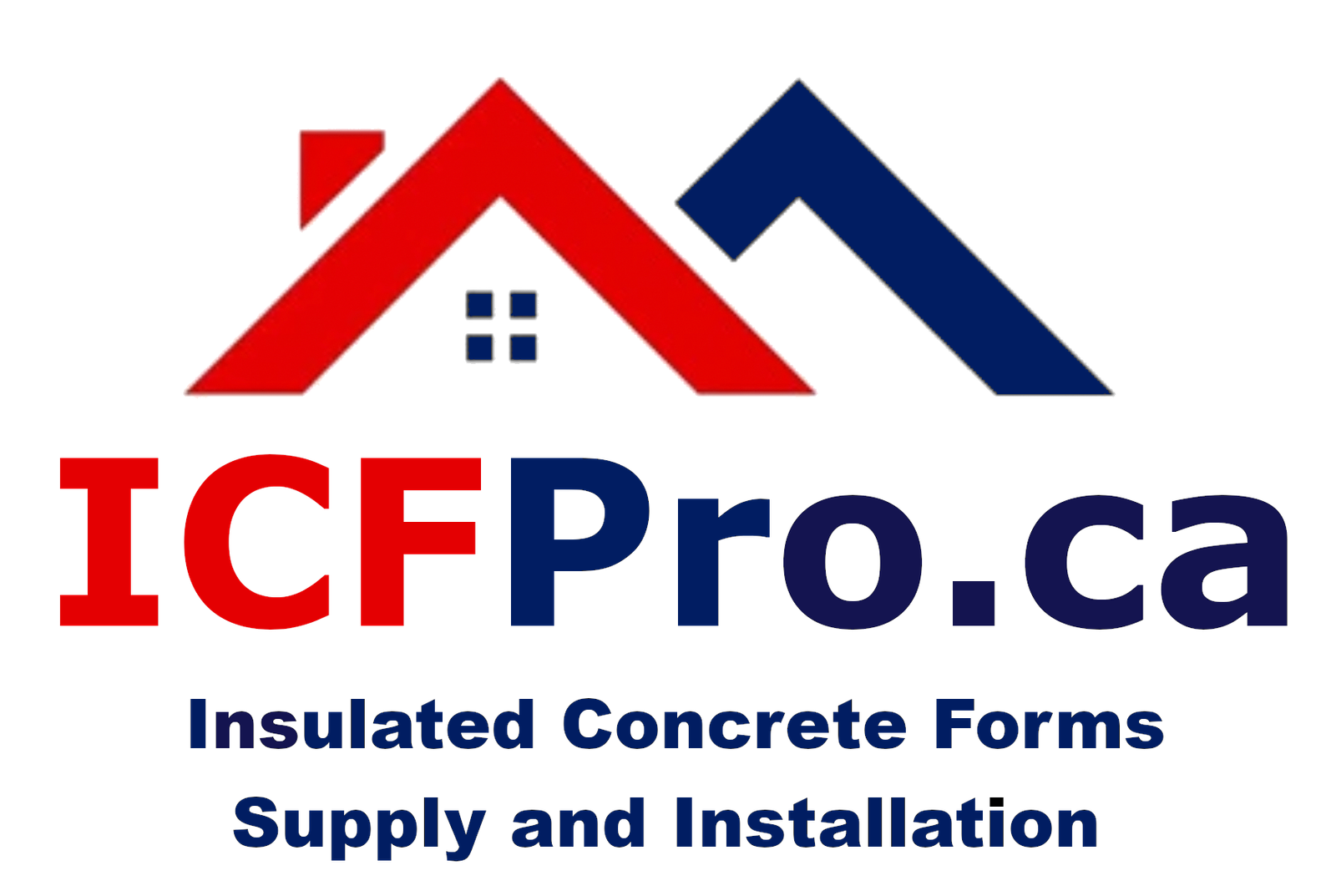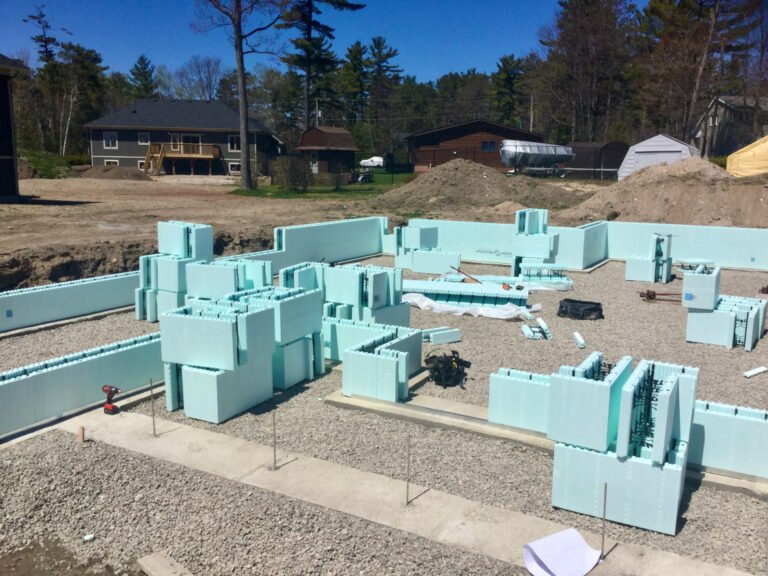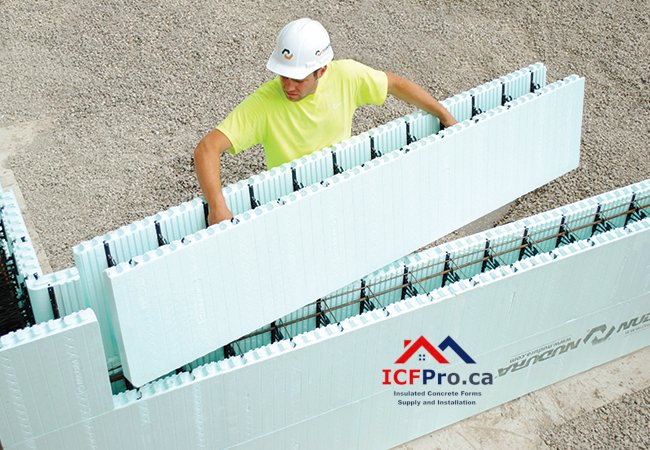ICFPro.ca is a division of ICFhome.ca - Phone 1 866 868-6606 - Direct Line 1 705 533-1633 - Email: info@icfhome.ca
ICF Pros and Cons

ICF Pros and Cons: The Unfiltered Truth Every Ontario Homeowner Needs to Hear
Let’s get one thing straight: Insulated Concrete Form (ICF) construction isn’t for everyone. It’s like avocado toast—some swear by it, others think it’s overpriced nonsense. But in Ontario’s climate, where winters freeze your soul and summers steamroll your AC, ICF isn’t just a trend. It’s a survival strategy. Before you drink the foam-and-concrete Kool-Aid, let’s break down the raw, unfiltered pros and cons. No fluff, no hype—just cold, hard facts (and a few jokes to soften the blow).The Pros: Why ICF Might Make You Smugger Than a Toronto Cyclist
1. Energy Efficiency: Slash Bills Like a Hockey Enforcer
- R-22+ Insulation: Walls block heat/cold better than a teenager’s bedroom door.
- Thermal Mass Magic: Concrete absorbs daytime heat, releasing it at night.
- Airtight Design: No drafts = HVAC system works 30–60% less.
- Savings: 1,500–1,500–3,000+/year in Ontario’s bipolar climate.
2. Durability: Outlive Your Mortgage (and Your Ex)
- 100+ Year Lifespan: Survives ice storms, humidity, and Muskoka cottage parties.
- Pest-Proof: Termites eat wood, not foam. Mice hate concrete.
- Fire Resistance: Withstands flames for 4+ hours. Take that, wildfires.
3. Noise Reduction: Silence Louder Than a Leafs Playoff Hopes
- Blocks 80–90% of noise—highway roar, barking dogs, your neighbor’s EDM phase.
4. Resale Value: Buyers Pay Extra for “Bulletproof”
- Sells for 5–15% more than stick-built homes.
- Example: A 1MTorontohome→1MTorontohome→1.05M–$1.15M.
5. Eco-Friendly(ish): Green Cred Without the Guilt
- Energy savings offset concrete’s carbon footprint in 5–10 years.
- EPS foam is recyclable (future park bench, anyone?).
6. Disaster Resistance: Laugh at Mother Nature’s Tantrums
- 250+ mph Wind Rating: Survives tornadoes/hurricanes.
- Flood-Resistant: Hose it off if the basement floods.
7. Low Maintenance: Less Work Than a Goldfish
- No rot, no mold, no warped doors. Just occasional caulking.
8. Comfort: No More Thermostat Wars
- Even temps year-round. That icy bathroom floor? Gone.
9. Design Freedom: Your Architect’s Wet Dream
- Curves, arches, cantilevers—foam bends to your will.
10. Humidity Control: Bye-Bye Swamp Air
- Foam doesn’t absorb moisture. Doors won’t stick, drywall won’t crack.
The Cons: Why ICF Might Make You Swear Like a Jays Fan in September
1. Upfront Cost: Wallet Trauma
- 5–10% more than wood framing.
- Example: 1Mhome→1Mhome→1.05M–$1.1M.
- Materials (foam/concrete) cost 15–15–20/sq.ft vs. wood’s 10–10–15.
2. Contractor Roulette: Finding ICF Pros Is Harder Than a Timmies Line
- Fewer crews know ICF. Those who do charge 10–20% more.
3. Renovation Headaches: Concrete Doesn’t Forgive
- Cutting ICF walls requires a pro (and a concrete saw).
4. Concrete Cracks: Cosmetic “Character”
- Hairline cracks are inevitable (but harmless).
5. Truss Uplift: That Pesky Ceiling Crack
- Roof trusses shift with temperature, cracking drywall.
6. Thick Walls: Space Hog
- Walls are 12” thick vs. wood’s 6”. Say goodbye to 5% floor space.
7. Design Limitations (Sort Of)
- Cantilevers need extra engineering. Your architect will charge more.
8. Permitting Hassles: Inspectors Need Schooling
- Some still think ICF is “experimental.” Bring specs.
9. Resale Risk: Not Everyone Gets It
- In rural areas, buyers might prefer “traditional” builds.
10. Aesthetic Prejudice: “It Looks Like a Bunker!”
- Jokes on them—your ICF hides behind brick or stone.
Myth-Busting: Let’s Gut the Lies
“ICF Is Only for Luxury Homes”
- Truth: Hamilton millennials are building ICF semis to dodge energy bills.
“Concrete Is Bad for the Planet”
- Truth: ICF’s energy savings offset its carbon debt faster than Greta Thunberg can say “how dare you.”
“Foam Traps Moisture”
- Truth: EPS breathes better than your Lululemons.
“ICF Is Too Expensive for Normal People”
- Truth: Middle-class families save more long-term. It’s like buying Costco-sized savings.
The Verdict: Should You Build with ICF in Ontario?
YES if:- You’re building a forever home (or cottage).
- You’re sick of Enbridge/Hydro One shaking you down.
- You want a house that scoffs at -30°C winters and climate chaos.
- You’re flipping or plan to move in <10 years.
- Your budget’s tighter than a Toronto parking spot.
- You hate commitment (renovating ICF isn’t for dabblers).



